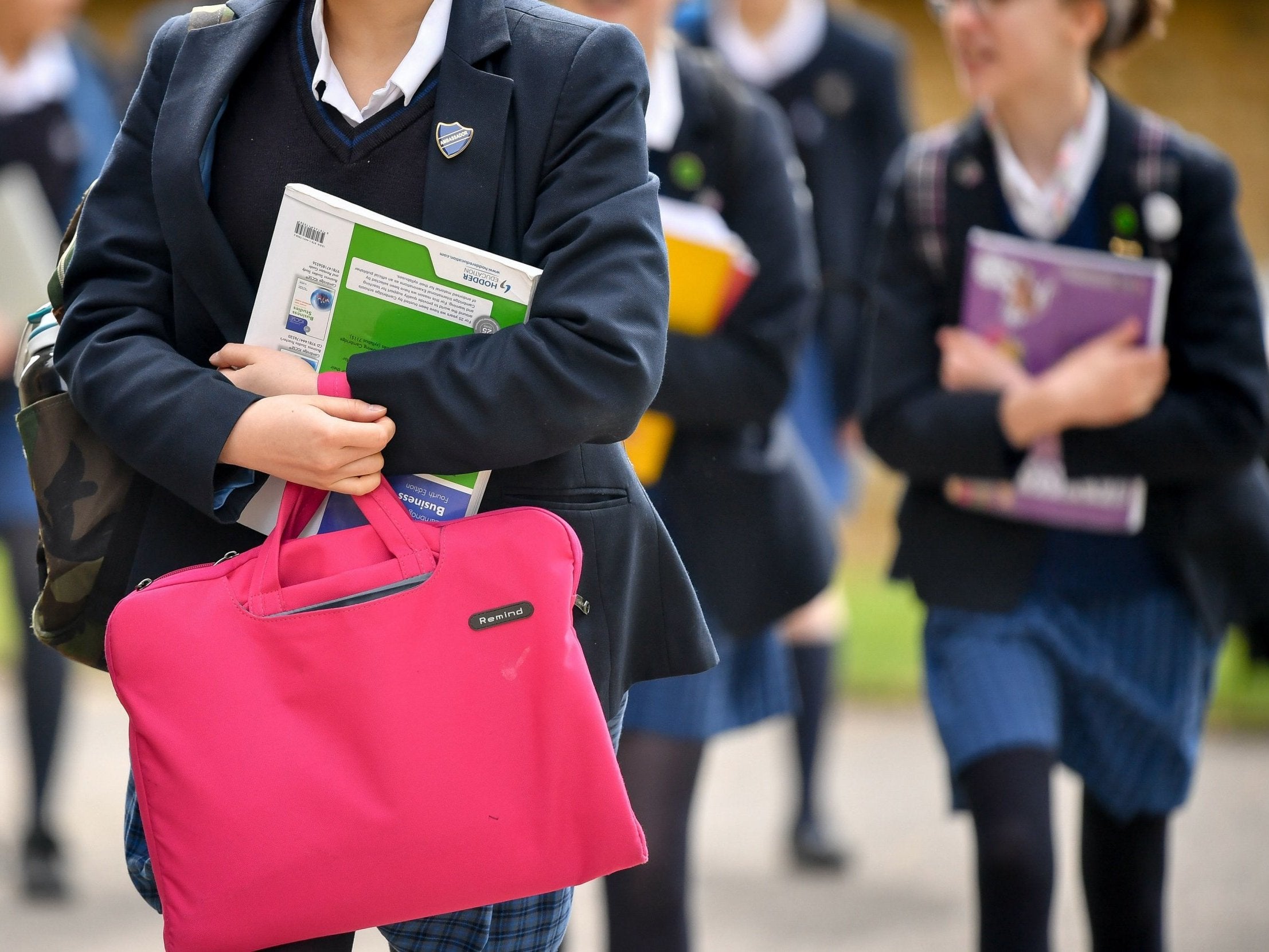Children's happiness in UK at lowest level for decade, charity finds
Decline in wellbeing among young people is 'national scandal', report warns

Your support helps us to tell the story
From reproductive rights to climate change to Big Tech, The Independent is on the ground when the story is developing. Whether it's investigating the financials of Elon Musk's pro-Trump PAC or producing our latest documentary, 'The A Word', which shines a light on the American women fighting for reproductive rights, we know how important it is to parse out the facts from the messaging.
At such a critical moment in US history, we need reporters on the ground. Your donation allows us to keep sending journalists to speak to both sides of the story.
The Independent is trusted by Americans across the entire political spectrum. And unlike many other quality news outlets, we choose not to lock Americans out of our reporting and analysis with paywalls. We believe quality journalism should be available to everyone, paid for by those who can afford it.
Your support makes all the difference.Children's happiness in the UK is at its lowest point in a decade - with crime and the environment among their key concerns, according to a new report.
Nearly a quarter of a million children in the UK – the equivalent of 219,000 – report being unhappy with their lives as a whole, according to figures from the Children’s Society charity.
The significant decline is a “national scandal”, it said.
Increased bullying, feeling unsafe at school and excessive use of social media are some of the potential driving factors behind the drop, according to the Children’s Society’s annual report.
Those as young as 10 are also worrying about broad societal issues – including crime (42 per cent), the environment (41 per cent) and information sharing online (37 per cent), it said.
The report found a third of 10-17 year olds also have concerns about whether they will have enough money in the future, with more than a quarter (29 per cent) worrying about having a job.
One in eight children are unhappy with school - which is at its lowest level since 2009 – and Year 10 students suggest bullying and not feeling safe at school are some of the reasons for low wellbeing.
The study found links between income poverty and financial strain and unhappiness with school.
A secondary school girl said: “A lot of things get stolen and people are rude and rough. Yesterday someone kicked my bag, called me a rude name and spat in my face.”
The charity’s annual Good Childhood Report also found that nearly one in 12 boys (7.7 per cent) aged between 10 and 15 - the equivalent of 180,000 - are unhappy with their appearance.
Historically boys have been happier with their appearance than girls but the gap is narrowing - and the report suggests the rise of social media is partly to blame.
One boy said: “Like Instagram and stuff, right? You see all these models, you see all these weight lifters, body-builders and you look at yourself and you’re like – I look like a stick. I feel like we’re exposed to a lot more so we are less secure about our appearance.”
Children’s happiness with their friendships is also decreasing - and this could be down to bullying, being unable to spend time with friends outside of school, excessive social media use and loneliness.
Mark Russell, chief executive at the Children’s Society, said: “Modern childhood is a happy and carefree time for most, yet for too many it is not. It is a national scandal that children’s unhappiness is increasing so quickly. Today’s young people are becoming progressively unhappy with their friendships – one of the fundamental building blocks of wellbeing – as well as appearance and school.
“Children are also burdened with fears ranging from worrying about the future, not having enough money to not feeling safe at school and bullying. Many young people tell us they feel sidelined and ignored by those in power.”
The charity is calling on the government to introduce a national measurement of wellbeing for children aged between 11 and 18 to be undertaken through schools and colleges once a year.
They say it would enable experiences to be recorded and issues acted upon for future generations.
Paul Whiteman, general secretary of school leaders’ union NAHT, said: “It’s no surprise that now school and college budgets are at breaking point, children are feeling less secure and less happy.”
From September 2020, health education will be made compulsory in all schools in England following growing concerns about mental health problems among young people.
Children will be taught how to build mental resilience – as well as how to recognise when their peers are struggling with mental health issues – as part of statutory lessons, the government announced.
Cllr Anntoinette Bramble, chair of the Local Government Association’s (LGA) children and young People Board, said statutory classes will help teach children about the importance of mental health, emotional wellbeing and resilience, as well as addressing issues such as bullying and online harms.
But she added that "significant funding pressures in children’s services and public health mean many councils are struggling to provide the support young people so desperately need. They are also being forced to cut some of the vital early intervention services, including youth services and school nurses, which can support children with low level mental health issues and avoid more serious problems in later life.
“It is absolutely vital that the government adequately funds these services in the Spending Round, so we can tackle this urgent crisis and make sure children get the help they need.”
The Department for Education has been approached for comment.
Join our commenting forum
Join thought-provoking conversations, follow other Independent readers and see their replies
Comments